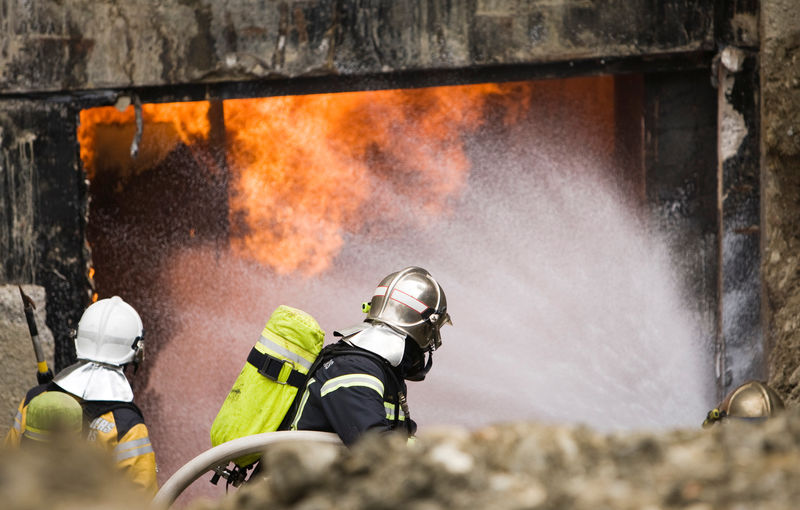ZURICH (Reuters) - Switzerland is easing an alcohol ban for volunteer firefighters and other emergency workers using heavy vehicles, saying it had led to staffing shortages when crises demanded quick action, especially in smaller towns lacking professional personnel.
Starting on Jan. 1, slightly tipsy volunteer firefighters and off-duty members of so-called professional "blue light" organizations responding to urgent situations will be no longer face punishment - provided their blood-alcohol level does not exceed 0.50 percent, the limit governing other drivers.
"This change is necessary as rescue and disaster relief organizations today are increasingly dependent on people who are not on duty or on call," the Swiss Federal Roads Office said in a statement on Wednesday. "The government is addressing the need for the best-possible recruitment of personnel in the event they are needed for unexpected rescue operations."
The current ban on alcohol caps volunteer emergency service workers' blood-alcohol level at 0.10 percent.
Peter Wullschleger, a Zurich emergency services commander, said the drinking ban remains in force for all firefighters who are on duty or on call and can reckon with being dispatched to an emergency.
Easing the restriction for those who are not is primarily aimed at small communities with no professional firefighters that must rely on volunteers to be ready at a moment's notice.
"With the ban, theoretically it would have been impossible for somebody enjoying even a nice glass of red wine during the Christmas holidays to fulfill their duty in the event of an emergency," Wullschleger said.
Wednesday's announcement represents the latest Swiss tinkering with laws on alcohol and occupational safety.

Last October, the Alpine republic closed a legal loophole that enabled cable car drivers to escape criminal prosecution if caught drunk on the job.